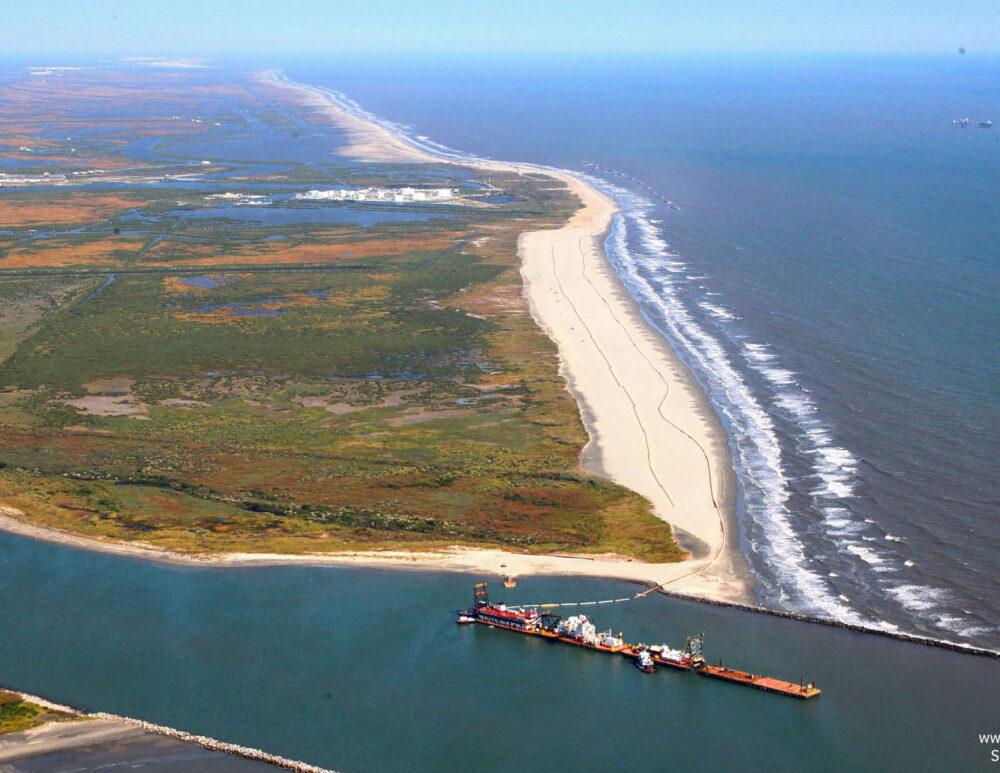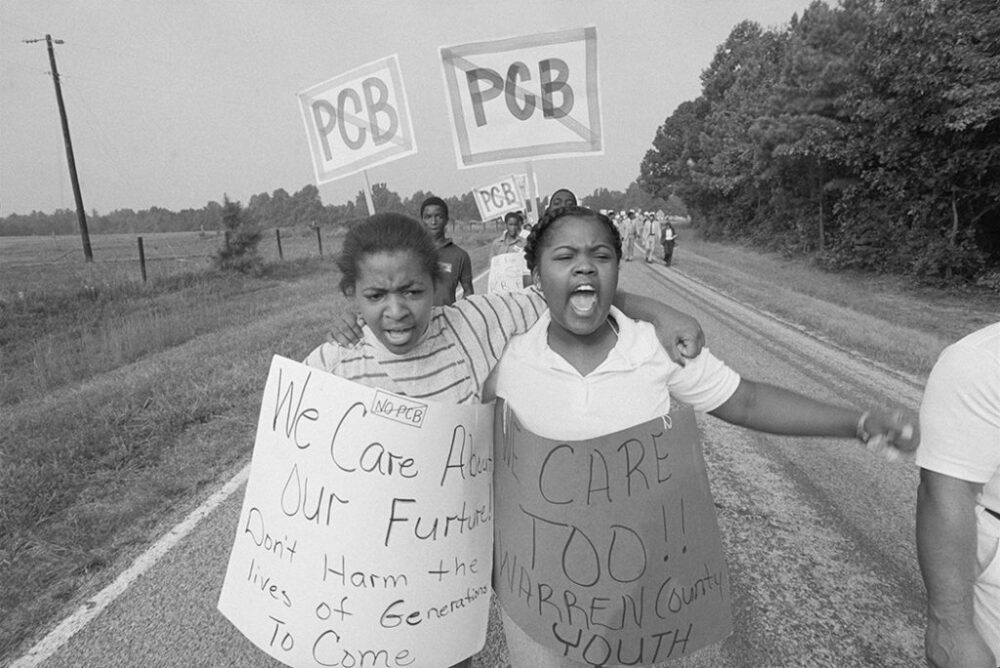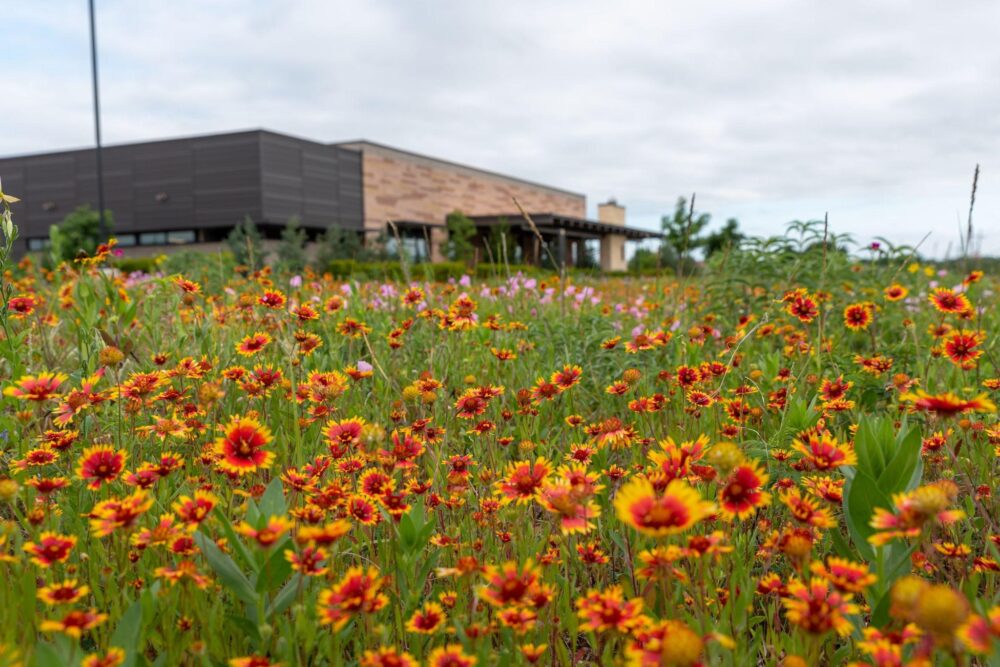We have much more to do and your continued support is needed now more than ever.
Building Detroit’s Green Future, One Faith Community at a Time
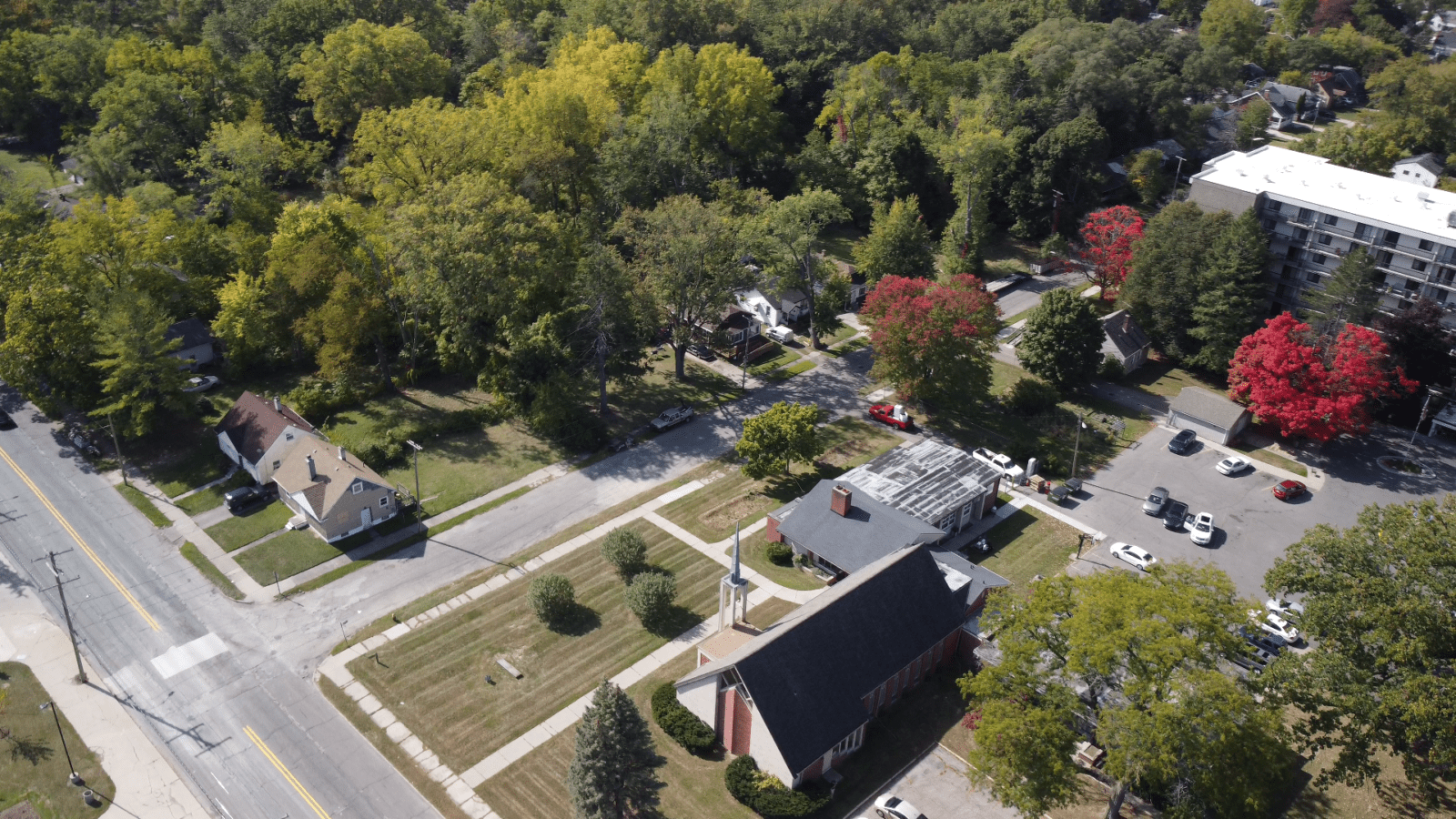
The historic building that houses Gesu Catholic School is nearly a century old. It spans 97,000 square feet on two blocks in the west side of Detroit, a magnificent presence in a quiet but growing neighborhood.
In 2017, when the city of Detroit changed the way it charges drainage fees, leaders at the school were faced with the grand property’s downside: roughly half of the sprawling edifice and lot is considered impervious surface. In other words, when it rains, the stones, bricks, terra-cotta tiles and cement that make up the extensive structures, roofs and parking lots turn into highways for water runoff, which pours straight into the sewer systems.
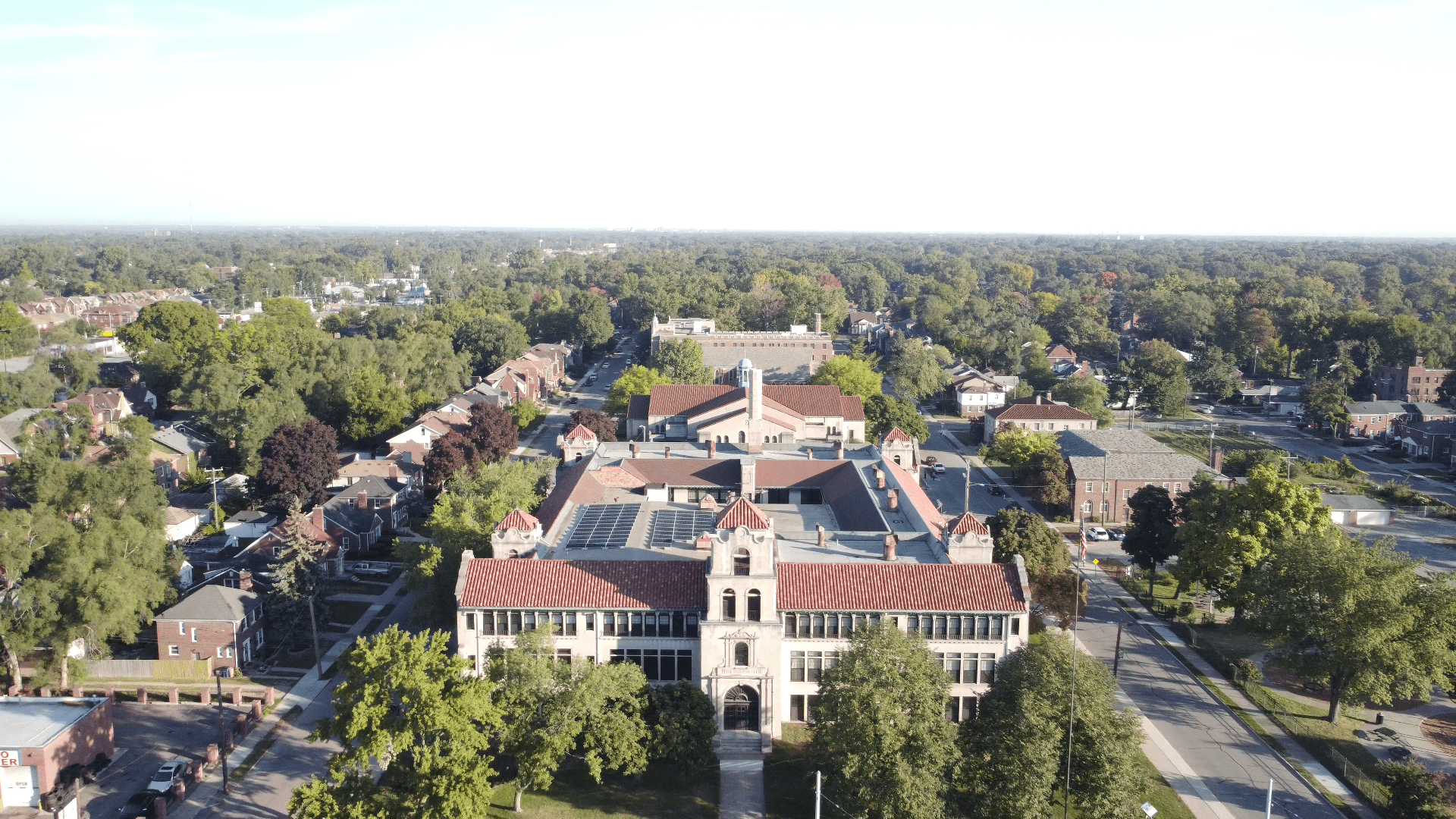
Instead of charging flat fees for drainage, the city of Detroit now calculates fees based on the amount of impervious surface, leaving institutions like schools and churches, which typically have large parking lots and large facilities, bearing a heavy financial load.
For leaders at Gesu and other faith institutions, however, the concern is more than just monetary, which is why they’ve turned to support from Sacred Grounds Detroit, a partnership between the National Wildlife Federation (NWF), Friends of the Rouge and the Sierra Club of Michigan to help install rain gardens at houses of worship.
“We are a little microcosm in the big city of Detroit, a very industrial city. What can we do on these two small blocks to green things up and to make a difference?” Anita Sevier, development director at Gesu Catholic School, said. “These little projects […] have all added up to a big thing for the big picture of Detroit.”
In the case of Gesu’s campus, those “little” projects include two bioswales — channels that allow for water runoff — five 500-gallon rain barrels, and more to divert water, helping grow native plants and even fostering water science experiments in the school courtyard.
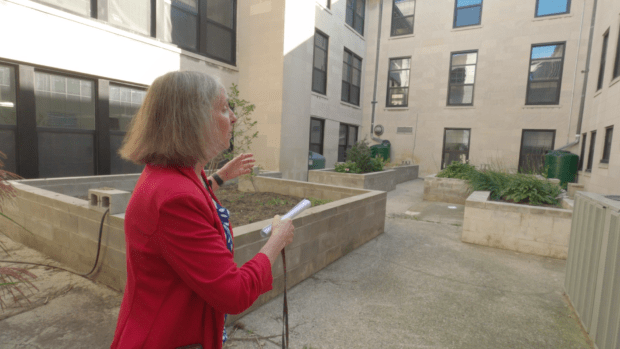
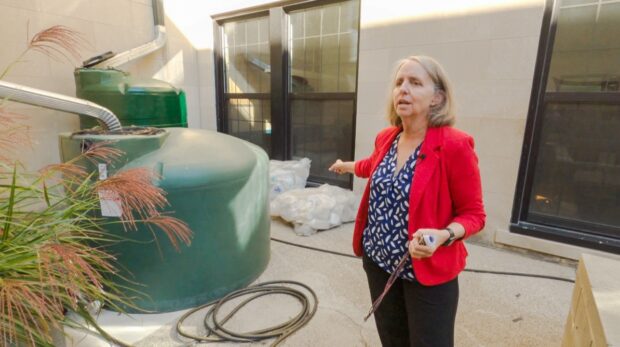
And little projects add up; Sacred Grounds is working on the ground with over 10 houses of worship across the city to not only improve water quality and support native plant and wildlife habitats, but also to address community health and wellness through implementing green space and lowering maintenance and upkeep costs for Detroit’s communities.
“Every small effort, every small garden, every plant makes a difference,” Tiffany Jones, education and engagement manager at NWF said. “I believe that with these larger challenges, we have to take incremental steps one side at a time, one individual at a time to really be able to embrace solutions, but also to bring folks along lifting as you climb.”
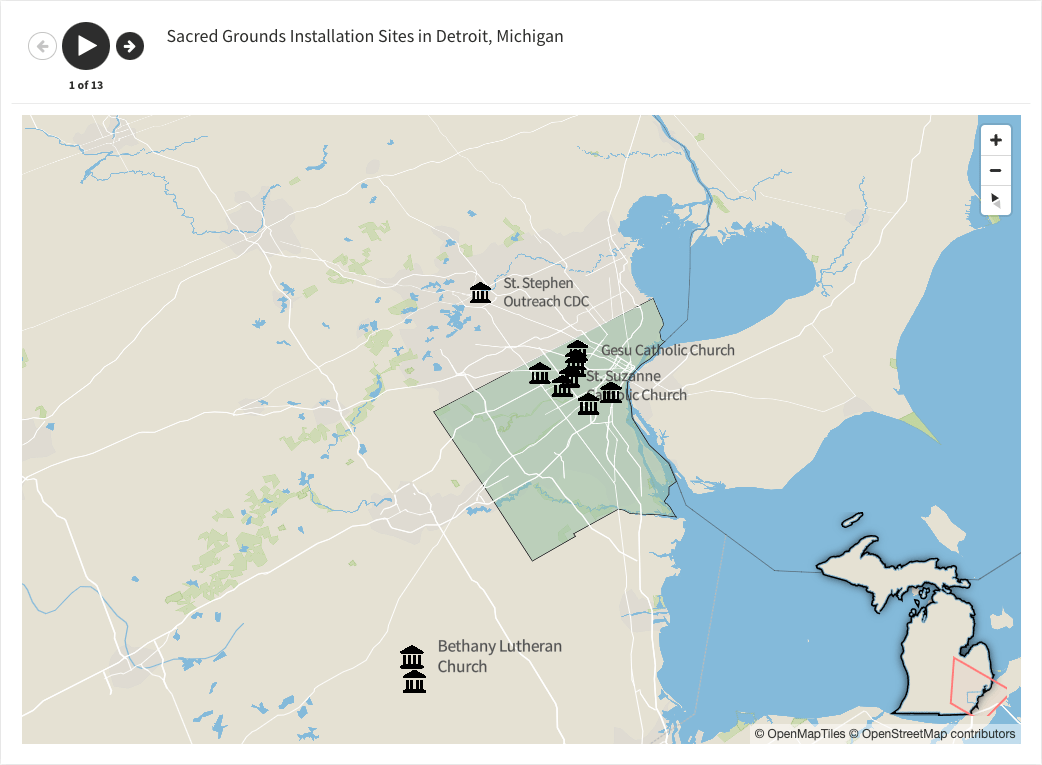
Over on the east side of the city, Hope Community Church-Detroit is also nurturing green space — and people.
“I personally would say, if you want our community to flourish, if you want to see your community partake in certain things, sometimes you have to take the first step,” Anthony Baker, a youthful member of the congregation, said. “And I feel like that’s a big part of a community gathering, as far as bringing a community together, bringing the younger people of the generation together and keeping the community a safe and clean environment.
Hope Community Church-Detroit installed two rain gardens through the Sacred Grounds program on June 4, 2022. Baker and fellow church member David Shelton water the garden faithfully every other day.
“Collaboration and community building is at the heart of what we want to do — [to] not be isolated, but bring people together for the beauty of the earth to take care of the earth,” said Alan Jones, shepherd at Hope Community Church-Detroit.
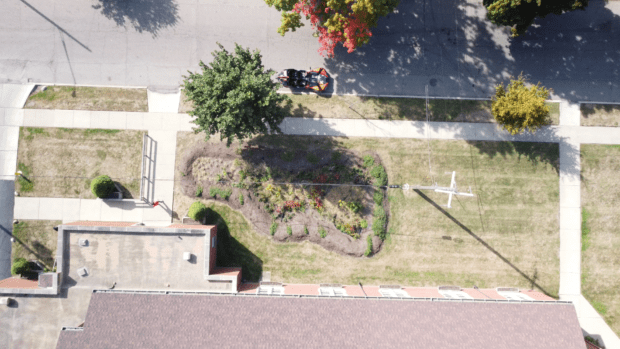
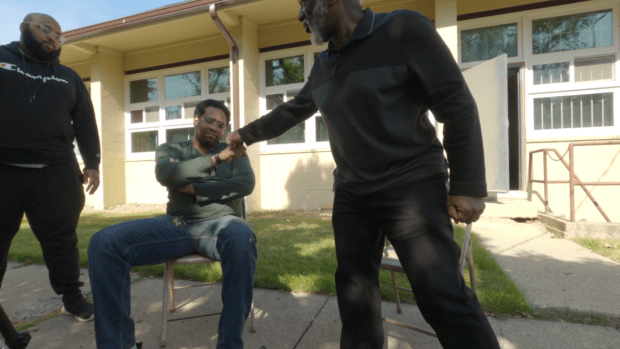
For Jones, investing in green space for the church goes beyond just beautifying their campus; it’s a small step in changing Detroit’s post-industrial image of rust, dirt and dilapidation.
“What can I do in this area to help promote the healing of the earth? The healing of the image?” he said. “It starts here, starts in my space, it starts where I’m taking care of things.”















